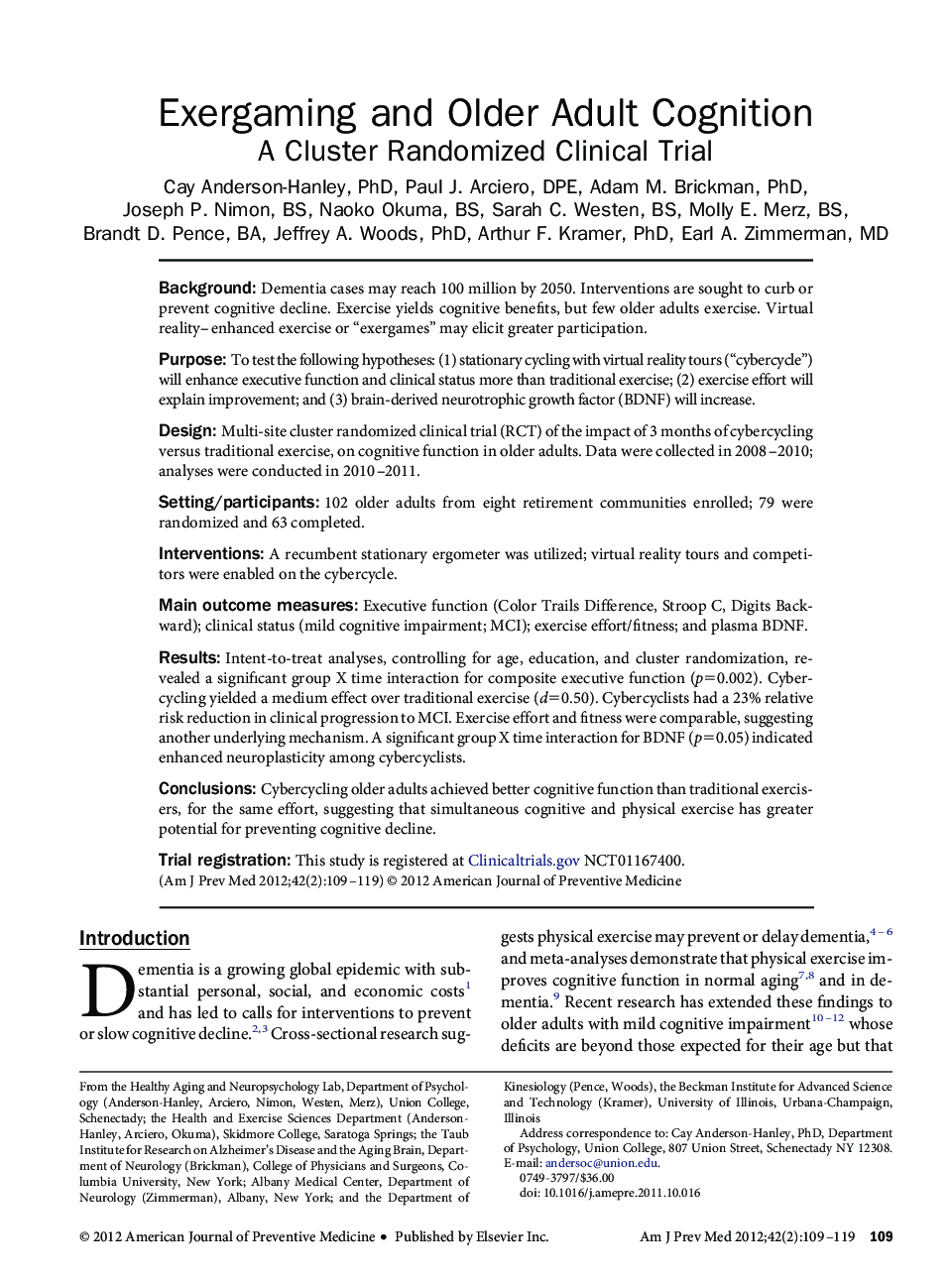| Article ID | Journal | Published Year | Pages | File Type |
|---|---|---|---|---|
| 4192912 | American Journal of Preventive Medicine | 2012 | 11 Pages |
BackgroundDementia cases may reach 100 million by 2050. Interventions are sought to curb or prevent cognitive decline. Exercise yields cognitive benefits, but few older adults exercise. Virtual reality–enhanced exercise or “exergames” may elicit greater participation.PurposeTo test the following hypotheses: (1) stationary cycling with virtual reality tours (“cybercycle”) will enhance executive function and clinical status more than traditional exercise; (2) exercise effort will explain improvement; and (3) brain-derived neurotrophic growth factor (BDNF) will increase.DesignMulti-site cluster randomized clinical trial (RCT) of the impact of 3 months of cybercycling versus traditional exercise, on cognitive function in older adults. Data were collected in 2008–2010; analyses were conducted in 2010–2011.Setting/participants102 older adults from eight retirement communities enrolled; 79 were randomized and 63 completed.InterventionsA recumbent stationary ergometer was utilized; virtual reality tours and competitors were enabled on the cybercycle.Main outcome measuresExecutive function (Color Trails Difference, Stroop C, Digits Backward); clinical status (mild cognitive impairment; MCI); exercise effort/fitness; and plasma BDNF.ResultsIntent-to-treat analyses, controlling for age, education, and cluster randomization, revealed a significant group X time interaction for composite executive function (p=0.002). Cybercycling yielded a medium effect over traditional exercise (d=0.50). Cybercyclists had a 23% relative risk reduction in clinical progression to MCI. Exercise effort and fitness were comparable, suggesting another underlying mechanism. A significant group X time interaction for BDNF (p=0.05) indicated enhanced neuroplasticity among cybercyclists.ConclusionsCybercycling older adults achieved better cognitive function than traditional exercisers, for the same effort, suggesting that simultaneous cognitive and physical exercise has greater potential for preventing cognitive decline.Trial registrationThis study is registered at Clinicaltrials.govNCT01167400.
